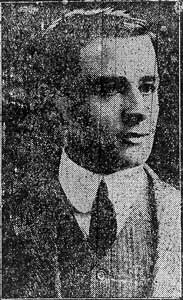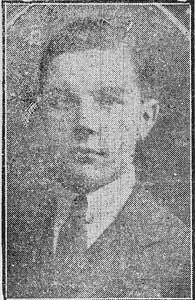
'THE GREAT WAR', 'THE WAR TO END WAR', 'WORLD WAR 1'
'What passing-bells for these who die as cattle?
- Only the monstrous anger of the guns.'
from 'Anthem for Doomed Youth'
by Wilfred Owen
1914 - 1918
'Oldham Terriers - Their Part in the War'
by Sergeant Maurice Bradbury, M.M.
Oldham Territorials, 1/10 Battalion, Manchester Regiment
Transcriptions of the series of articles published in the 'Oldham Standard' in Spring 1919.
FINAL DAYS IN EGYPT From January to the latter end of March the Battalion continued its training in Abbassia Barracks along with the 1/6th Battalion the D.Y.O.L. and the Westminster Dragoons, and the work was little less severe than it had been in the earlier days, and included many of those "Third timer stunts", old members of the Battalion will still look back upon with dread and awe. But in those days officers and men had reached a standard of soldierly perfection which only hard training and rigid discipline could give them, and had earned that glorious tribute from Sir Ian Hamilton: "These men have all the eclat of the regular soldier," when he took the salute before the Continental Hotel in Cairo. The test of training here lay more in the climatic conditions than in the duration of it. Men were sweating their way across a scorched desert by 8am in a morning in full marching order for battalion or field operations or were firing their musketry course on the desert range where the dazzling sun persuaded a man to take far more foresight than was conducive to good shooting. Men groused, of course. It is a Tommy's one great right and privilege, but they did it, and when they returned to the cool of the old barrack square with sun-burnt faces and wet with perspiration a splash in cold water and a wholesome dinner put them at peace with their surroundings once more. And one great advantage of doing their training in an oriental country was that there was always something interesting outside working hours. In those days of hot weather and hard work it was a splendid tribute to the sporting side of a Lancashire man to note that Rugby football was being played as enthusiastically, or more so, than ever it was at Watersheddings. One day in particular will always be remembered by men of the old 10th. It was a day which heralded the coming of a sand-storm. To put one's head outside the barrack room was exactly like putting it into a partially heated oven, and even the 'nxxxs' sought the sheltered spots for coolness. "Oldham," however, were to play Wigan that day and it would take more than an Egyptian "scorcher" to upset the match. Men played naked to the waist and the tackling and the scrums were as vigorous as it was possible to have them. Oldham finished the victors by three points. After dinner on this day the men had their first view of that strange natural phenomenon, a locust cloud. The sky was darkened as if by an eclipse of the sun as millions and millions of the locusts flew over the barracks on their way to the Nile crops, and thousands of the low-flying locusts struck the upper part of the buildings and fell in the barrack square.
And speaking of locusts reminds one that the regimental pet - Umpy, the incorrigible monkey - had a strong partiality for locusts, dead or alive. To measure the extent of his chain and then tantalise him with the sight of a prime fat locust was to invite snarls of the most ferocious nature. Umpy also had the characteristic peevishness of the monkey. Each man in barracks had his particular space for his own belongings, and these were laid out with all necessary neatness. When the men left the room Umpy would "weigh up form;" and when the coast was clear would change articles of kit from one bed to another, with the result that when Tommy returned from a fagging parade he would glare round and truculently accuse his comrade of "pinching" his kit, and the comrade could not deny it because the missing article was found amongst his possessions. Yes, looked back upon, those short weeks at Abbassia were the happiest in the soldiering of the 10th Manchesters, for Cairo and all its attractions, Malaria, the Pyramids, and other world historic places were also within easy reach and could be visited daily, and the ride in the "white car" from Abbassia to the centre of Cairo was an experience of note in itself, if taken about sunset, when the sky was a mingling of rich colour, and the distant mosques were bathed in a flood of gold, and the pyramids stood blackly silhouetted against an orange background. The green, white and blue gowns of the dark-eyed Arabs, and the veiled women, all were part of the Eastern setting which fascinated in spite of its underlying dirt. Mystery there is always in the East, for it is foolish to try and explain when Allah knows and understands all, and will always provide for the morrow. It was whilst in barracks here that Capt. Leach and his machine-gunners and the transport section returned from the Canal to the Battalion and gave their intensely interested comrades first hand information of a man's sensations when first coming under fire, and not one amongst them ever dreamt for one moment when they were describing the singing of the bullets over their heads that there would come a day when such an experience would seem trivial indeed compared to modern scientific fighting. About the end of March rumours began to get about that a large Turkish force was advancing from El Arish across the desert for a contemplated attack on the Suez Canal, and that the division was to proceed to meet them. Not very long after this the division was put under orders for the canal and the 10th entrained at Abbassia for Kantara, which place at that time was simply a collection of broken-down mud houses. The Battalion arrived at Kantara late in the afternoon and each company proceeded from there to separate posts along the Asiatic bank of the canal and one detachment took charge of an armoured train running on the railway along the canal bank and occasionally flashing a searchlight across the desert. The work of the Battalion was simply to find patrols and outpost and entrench against the coming of "Johnny Turk," and British gunboats patrolled the canal and threw searchlights across the desert at night. The Indian Camel Corps and the Bengal Lancers were doing useful work here in the way of locating the enemy and his probable direction of attack. However, the battalion did not come in contact with the main Turkish force, and all that was seen of the enemy was a straggler here and there, bagged by the Indian Camel Corps and looking in a shocking state through lack of water and food. Towards the end of April the whisper went round that the division might depart any day for the Dardenelles and this was realised at the beginning of May when they were concentrated on the sand outside Port Said. For a day and a night everybody was feverishly busy changing from khaki drill clothes into service dress and making the final preparations for embarkation of what was now realised to be a real war. Before leaving Umpy, the battalion pet, was handed over to some troops remaining in Egypt much to the sorrow of his many admirers. Two companies and headquarters of the 10th Battalion embarked on the Haverford and the remaining two companies on another boat, and few will forget with what feelings of excitement and uncertainty the men left the eastern port. As the transport ships glided out of the harbour French marines lined the decks of the battleship Joan of Arc, and sung the Marseillaise and cheered wildly, and the British Tommies responded with a heartiness a Lancashire soldier knows so well how to show. But the cheers of the boys were tinged with more than a little sadness, sadness at leaving a country which had given them so many happy memories and which many began to realise they would never see again for they were once more sailing into the unknown and this time where the possibilities of war and its tragedies were much more real, and though the sea was blue and the sun warm the more far-seeing could see the ominous cloud on the horizon.
|
'Oldham Men's Fights on Many Battlefields' |
Final Days in Egypt Part 2 |
Journey to Gallipoli |
March to Gallipoli Trenches |
Gallipoli's Decisive Battle |
Return to Cape Helles |
The Battle of Romani |
Approach to the Trenches |
Horrors of Ypres in 1917 |
Greatest Battle of All Times |
The Grand Slam
~~~~~~~~~~ Weeks of Continuous Fighting ~~~~~~~~~~ Oldham Lads Face Hail of Bullets ~~~~~~~~~~~ A Glimpse of Unsurpassed Heroism |
Last Stages of the Struggle |
Transcriptions by Sheila Goodyear :

